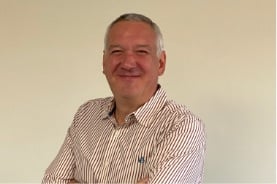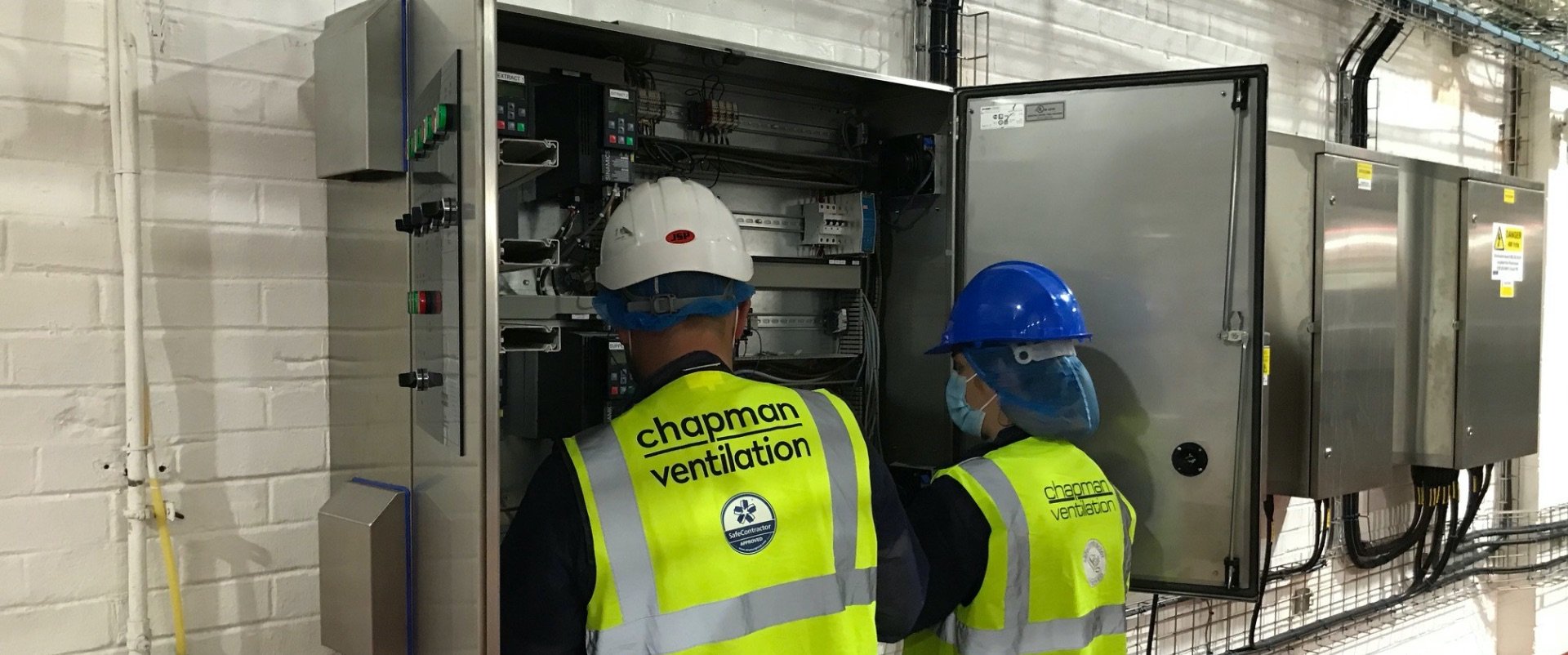Introduction
From the humble start with their first client, Peter Boiso of Pizza Express, Chapman Ventilation’s customer portfolio has grown steadily over the decades to include brands like Nando's, Burger King, Chipotle, The Ivy, Dishoom, and Sticks & Sushi.
Kitchen ventilation projects is generally an area that HVAC companies only complete one or two of every year. Chapman delivers close to 200 new kitchens every year, so their expertise in restaurant mechanical fit-outs, particularly in ventilation, is both extensive and acknowledged.
However, despite all the experience, for the longest time, Chapman could not help their clients solving one of the biggest inefficiencies in the operation of a restaurant. They could not find a technical solution to recover the inherent energy in the excess heat from the kitchen machinery, which is vented straight outside with the extract air from the kitchen hoods.
The Challenge of Heat Recovery
Restaurants produce significant effluent (the mixture of steam, oil, smoke, and heat that is extracted out during cooking), which is typically discharged outside the building. As the effluent contains grease and other contaminants, conventional heat recovery systems struggle to perform efficiently in such environments. This is because the conventional coils, when deployed in the kitchen duct, receiving the effluent, get clogged and lose their ability to recover heat efficiently.
And despite many industry attempts, no technology has succeeded in delivering reliable, long-term heat recovery solutions.
Until now.
Following the energy crisis of 2022, businesses were feeling the pinch more than ever, and Chapman’s customers were dealing with the prospect that energy prices were never going to return to normal.
As Nigel Atkinson, Commercial Director, from Chapman stated, “Normal doesn’t exist anymore, energy prices are likely never going to return to pre-crisis levels, so businesses were more eager than ever to try a solution that would help save them money.”
Discovering Enjay's Solution
Intrigued by the potential benefits, Chapman introduced Enjay’s heat exchanger to their clients and successfully installed it in several restaurants, with the first installation taking place in 2022.
After introducing the heat exchangers to other customers, “it became immediately obvious to the businesses that installing these smarter heat Exchangers from Enjay was a no-brainer. The payback period is between 2-3 years, so the finance directors are seeing a huge benefit for them on the operational side of things, and as is the case with many of our customers, they have more than one restaurant under their management. If businesses have 10 or 20 restaurants, they can entirely replace the units in them across the board for even more ambitious savings.”
The Three Advantages of Heat Recovery
Enjay's heat exchanger technology offers several key advantages that have captured the attention of Chapman and their clients.
Firstly, it captures and transfers heat efficiently, contributing to significant energy savings. A typical quick serve restaurant in the UK will save more than 95% of the energy they currently purchase every year to power the heater blower tempering the make-up air supplied into the kitchen/restaurant. The total number of kWh will vary depending on the total extract and supply air volumes, and a typical span is between 50 000 kWh and 120 000 kWh per year. Almost all heater blowers are electrical, which means the kWh savings are coming off the electricity bill.
Secondly, to design the Enjay heat exchanger into the energy system will reduce the total installed power of the site. For many city center sites, the total available power is often limited to about 100 kW. Most restaurant concepts typically require closer to 130 kW to power all machinery, installations and auxiliaries. A very common spec for the electrical heater blower in the supply air for a quick serve restaurant is 27 kW. This piece of equipment can be fully omitted when Enjay’s technology is installed, decreasing the required installed power by 27 kW, bringing the total required power down to the 100 kW which are typically available for city center sites. A huge advantage when site-hunting.
Thirdly, every saved kWh is directly translatable into a decrease in fossil CO2 emissions. Currently in the UK, a saved kWh saves 183 g of fossil CO2, pushing the total annual emission savings for an average restaurant well above 10 tons!
Adapting to a New Energy Landscape
It’s become clear to most businesses that energy costs are at a “new normal” and will likely never dip back to where they were. As energy prices remain uncertain and unlikely to return to pre-crisis levels, businesses are compelled to seek innovative ways to reduce operational costs and carbon footprints. Enjay's technology not only addresses this challenge but also offers a payback period as short as 2-3 years, making it an attractive investment for finance directors of restaurant chains.
Expanding Horizons
Chapman UK is not limiting the application of Enjay's technology to their existing clients, though. They are actively exploring opportunities in the wider food processing industry, where large-scale production facilities consume substantial energy resources.
These include factory-size food production, manufacturing, and heavy industry, each of which have far more energy consumption than restaurant chains and thus could yield even greater reductions in emissions.
By capturing and reusing heat in these facilities, Enjay's technology can bring about transformative cost savings and environmental benefits.
Conclusion
Chapman Ventilation's partnership with Enjay and their adoption of the cutting-edge heat exchanger technology, is setting a new precedent for the restaurant industry's approach to ventilation and energy efficiency.
As restaurant businesses seek to build strong brands and reduce operational costs, the adoption of Enjay's technology has become a compelling proposition. With a payback period of as little as 2-3 years, the financial incentives are clear and the environmental benefits make it a surefire win.

